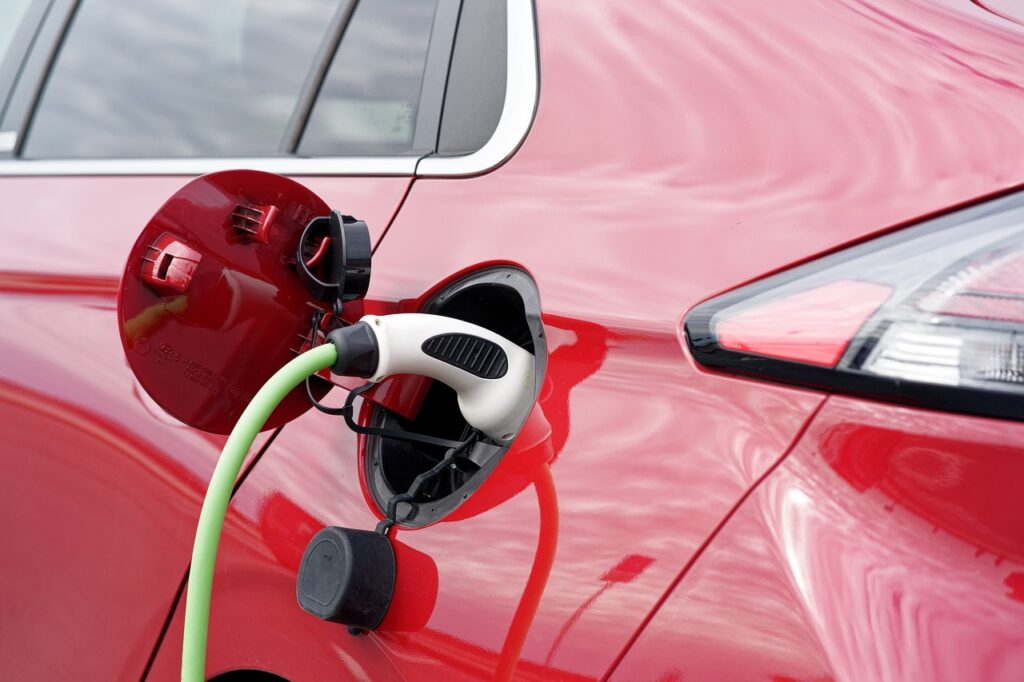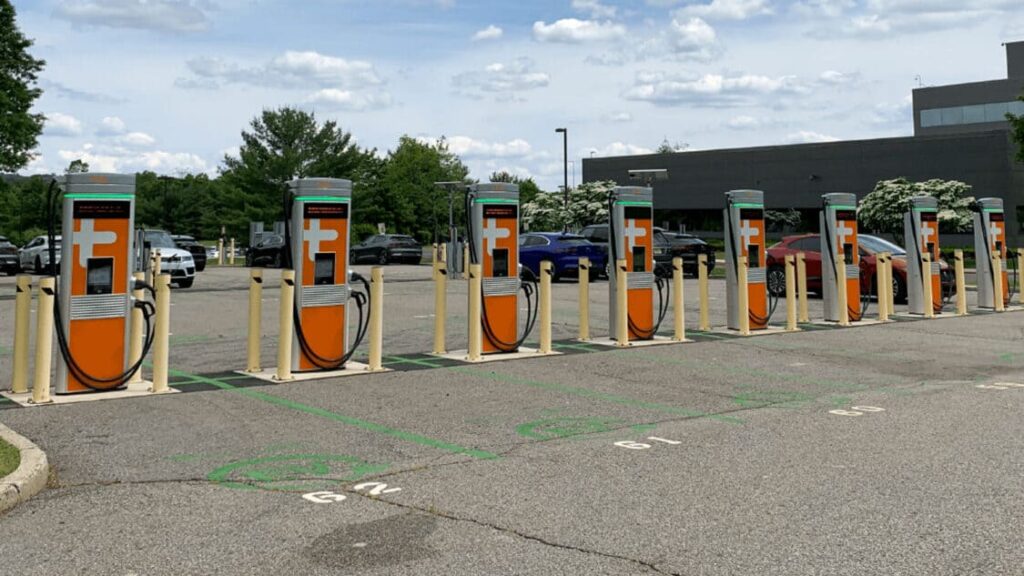WattsUp and ChargePoint Use AI to Improve EV Charger Reliability
Artificial Intelligence (AI) has rapidly transformed industries worldwide, including the electric vehicle (EV) and EV charging sectors. Its integration into these industries is creating smarter, more efficient, and sustainable solutions.
Public EV Charging Stations Experienced an 18% Failure Rate In the Fourth Quarter of 2023
According to the latest J.D. Power surveys on charging satisfaction, reported by Kelley Blue Book, public EV charging stations experienced an 18% failure rate for charging attempts in the fourth quarter of 2023. A range of issues can contribute to downtime for EV chargers, including hardware malfunctions, software glitches, and connectivity problems. This high failure rate highlights the need for improved reliability and maintenance in EV charging infrastructure.
“Public charging needs to provide a much better experience across the board, not just for the users of today, but also to alleviate the concerns of skeptical future customers,” said Brent Gruber, Executive Director of J.D. Power’s global automotive practice.
Charging station downtime is often caused by hardware failures and inadequate maintenance. Common hardware issues like blown fuses, loose connections, and degraded components can develop over time, leading to station outages. Network connectivity problems, which interfere with the ability to remotely monitor and control charging stations, can further exacerbate downtime when operators cannot quickly identify or address issues.
A lack of regular preventative maintenance also contributes to extended outages, as small problems may go unnoticed until they cause significant failures. When maintenance or repairs are delayed, charging stations can remain inoperable for longer periods, frustrating EV drivers and undermining the reliability of the charging infrastructure. These issues emphasize the importance of timely maintenance and responsive repairs to ensure charging networks operate smoothly and consistently.

97% Uptime Requirement for NEVI-funded Stations
In February 2023, new regulations were tied to the federal National Electric Vehicle Infrastructure (NEVI) funding program. States and companies receiving federal funding must comply with several requirements, including a notable uptime mandate. Specifically, charging stations built with NEVI funds are required to be operational at least 97 percent of the time on an annual basis. This is the first such uptime requirement in the U.S. for EV charging infrastructure, setting a high standard for reliability.
This rule is designed to ensure that the charging network is dependable and widely accessible, addressing one of the major concerns for EV adoption: the availability of reliable charging. By enforcing this standard, the government aims to increase user confidence in the charging infrastructure and support the growing demand for EVs across the country.
The ChargeX Consortium Was Established to Address EV Charging Problems
The National Charging Experience Consortium, also known as the ChargeX Consortium, is a collaborative initiative aimed at improving the reliability and usability of public EV charging infrastructure. The consortium brings together key stakeholders such as Argonne National Laboratory, Idaho National Laboratory, National Renewable Energy Laboratory, experts from the EV charging industry, consumer advocates, and other interested parties. EVinfo.net and WattsUp are proud members of the ChargeX Consortium.
The ChargeX Consortium’s mission is to collaborate with these stakeholders to measure and significantly improve the reliability and usability of public charging stations. The target is to achieve substantial advancements by June 2025, addressing issues that have hindered the widespread adoption of EVs, such as inconsistent charging station performance and user experience.
“Our vision is that any driver of any EV can charge using any charger, the first time, every time,” said John Smart, Director of the ChargeX Consortium.
In September, the ChargeX Consortium released the Customer-Focused Key Performance Indicators (KPIs) for Electric Vehicle Charging report. This report outlines two sets of recommended KPIs designed to assess and improve the public charging experience for electric vehicle (EV) users. These KPIs aim to provide measurable standards that ensure a more reliable and user-friendly charging network.

Chargepoint Announced the Integration of Artificial Intelligence (AI) For Diagnosis and Repair of Charging Stations
ChargePoint announced the integration of artificial intelligence (AI) into its EV charging network to speed up the diagnosis and repair of faulty charging stations. This AI-powered driver support tool, which is the first of its kind in the EV charging industry, is designed to significantly improve charger uptime and overall network reliability. These factors are crucial for encouraging wider EV adoption by ensuring that charging infrastructure is dependable and efficient.
Rick Wilmer, CEO of ChargePoint, highlighted the importance of this advanced technology in maintaining a robust and reliable charging network, underscoring its role in the company’s mission to support the growing demand for electric vehicles.
The company believes that by leveraging AI to detect and address physical issues with chargers, they can improve uptime and enhance the overall reliability of the charging network—something that EV drivers have been seeking for years.
The AI-centric software, though complex behind the scenes, has been crafted to be user-friendly for drivers. EV drivers who encounter a nonfunctional charging station can report the issue and submit photos through an updated “report a problem” feature in the ChargePoint app. The app then links the issue to the station’s location and uses AI to analyze the submitted images for anomalies, drawing on data inputs that have been specifically trained for the EV charging domain.
Once the software identifies the problem, it generates a detailed report that is sent to ChargePoint’s Network Operations Center. This center can then assess the issue and work on a quick resolution. ChargePoint highlights that this new process, which focuses on remote diagnosis and analysis, reduces the need for most on-site inspections, thereby significantly decreasing charger downtime.
WattsUp Provides Machine Learning Reliability for Connected Chargers
Chargepoint’s AI system requires drivers to report the issue, resulting in a poor customer experience at the charging station. In contrast, the software solution offered by WattsUp works so that drivers are never burdened with the responsibility of reporting a problem, because most issues will be caught before drivers get to the charger. And if they aren’t due to issues like vandalism, WattsUp’s algorithm-driven, automated platform ensures that all bottlenecks that occur post-error, are eliminated.
WattsUp works with a variety of EV charging site operators, hardware manufacturers, and technician groups to improve reliability. At the heart of WattsUp’s platform is its powerful AI technology and its prioritization of a sometimes overlooked stakeholder in charging — the technician. By utilizing proprietary machine learning algorithms, WattsUp analyzes data from EV chargers to deliver accurate predictions and valuable insights to site operators and technicians.
This technology not only enables proactive maintenance that optimizes the long term performance of charging infrastructure, it enables collaboration between two critical stakeholders in charging. The combination of these powerful features ensures greater profitability from charging infrastructure and a better experience for EV drivers.
The system is designed to be versatile, accepting both OCPP-compliant data and non-OCPP-compliant data from legacy chargers. This flexibility allows the company to integrate seamlessly with a wide range of EV charging infrastructure, ensuring comprehensive coverage and support for both modern and older charging systems. Adding to its versatility, the solution’s API and proxy architecture ensures the product can integrate into any charging ecosystem.
“In an environment where EV skepticism is high and charger reputation is low, innovative and end-to-end solutions like WattsUp’s are what the industry needs to propel us into the next wave of electric vehicle adoption,” said Audrey Wooding, Chief Operating Officer at WattsUp.
WattsUp is an Entrepreneur Roundtable Accelerator (ERA) portfolio company launching pilots in October 2024. EVinfo.net highly recommends the innovative WattsUp, promising to make a great impact on EV charging reliability, therefore increasing EV adoption.

Electric Vehicle Marketing Consultant, Writer and Editor. Publisher EVinfo.net.
Services